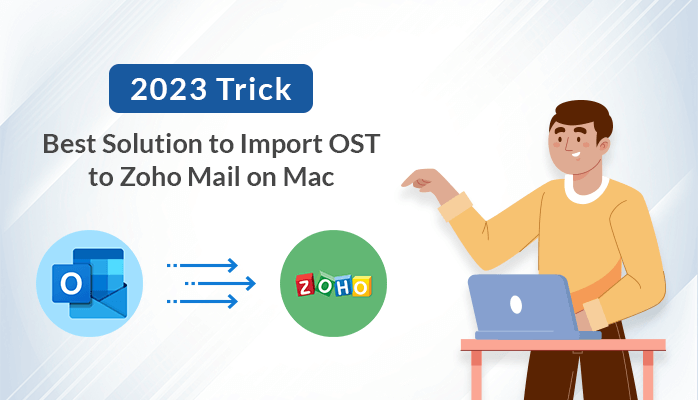The partnership of artificial intelligence and industries is redefining how business transacts in the changing technology environment. This transformation was one of the notable transformations that took place between Microsoft Azure Open AI services and the multinational automobile company Mercedes-Benz.
Using Open AI-driven solutions, Mercedes Benz enhanced its production and customer services and forged a way for self-driving cars. This transformation is a demonstration of the effectiveness of cooperation between giant IT companies and professional market players who see unlimited prospects for artificial intelligence in the development of the automobile sector.
In this blog, we will explore how Mercedes Benz collaborated with Microsoft Azure Open AI Services to transform the automobile industry.
Unveiling the Potential of AI: A Strategic Partnership
In a period where data is monarch, Mercedes-Benz realised the use of AI to lead this cutthroat car industry. They sought innovation to Microsoft Azure Open AI services reputable for sophisticated machine-learning algorithms and data handling.
The alliance of Mercedes-Benz with Open AI and Microsoft Azure turned out to be a breakthrough for the car manufacturer. Using the strong Azure OpenAI Consulting cloud architecture with the advanced machine learning models of Open AI, Mercedes-Benz undertook a revolution towards greater efficiency in different areas of the organisation.
The collaboration between Mercedes-Benz and Microsoft Azure OpenAI service accelerated developments in autonomous driving technology. Through deep learning and computer vision, AI systems interpret data from sensors and cameras, laying the groundwork for self-driving cars. This groundbreaking technology not only ensures safety but also redefines the future of mobility.
Revolutionizing Vehicle Design and Manufacturing
Vehicle design and manufacturing constituted one of the major areas that AI had a great effect on. In this case, Mercedes-Benz applied AI algorithms that examined a huge volume of information about what customers like, market dynamics, and past sales. Their design team used a data-driven strategy, which enabled them to come up with tailored vehicles for the continuously changing needs and tastes of consumers.
Additionally, predictive analytics AI-powered further streamlined the production process. Real-time analysis of production data would enable Mercedes-Benz to predict demand correctly, control inventories effectively, and minimise manufacturing costs. Apart from improving efficiency, it enabled the organisation to adapt quickly to changing market demands compared to other institutions.
Mercedes–Benz used AI-driven predictive analysis to enhance its manufacturing procedures. The predictive maintenance algorithms facilitated the service of the machines and equipment just when necessary, thereby reducing downtime and improving productivity. The strategy proved very effective in cutting down on operational expenses and optimising the output chains.
Mercedes Benz tapped into the power of Microsoft Azure’s analytics capabilities and was able to leverage big data emanating from the movement of its vehicles and customer touchpoints. With these, the company directed its product development, marketing strategies, and customer engagement on informed decisions using data.
Advancing Vehicle Safety and Autonomous Driving
Safety has remained one of the hallmarks of Mercedes-Benz. They made vehicle safety unparalleled with Azure AI Consulting. The study used machine learning algorithms to analyse sensor and camera data collected in real-time from vehicles. The cars can detect potential dangers on the road, predict a collision, as well as inform the driver in advance with these algorithms. AI was key in the area of driverless vehicles. Using Azure’s AI, Mercedes-Benz was able to develop advanced self-driving algorithms towards the perfection of autonomous cars.
Through deep learning and computer vision, AI would read data from various sensors and cameras, paving the way for modern autonomous vehicles. The innovative nature of this technology guarantees security and recreates the concept of mobility.
Driving Sustainable Innovation: Environmental Impact and Resource Optimization
The aspect of sustainability is one of the core values of Mercedes-Benz. In both manufacturing plants and supply chain operations, AI helped to optimise energy utilisation. Using energy consumption patterns, they determined specific points at which energy efficiency could be improved to reduce CO_{2} emissions and operating expenses.
In addition to this, AI-predicted maintenance ensured the maximum efficiency of vehicles. Using data from sensors within the cars at Mercedes-Benz, they would be able to forecast possible mechanical problems before they become severe. By being proactive, this approach greatly lowered the amount of money spent on maintenance and reduced customer vehicle downtimes while maintaining maximum performance for optimal customer experience.
The Future of Mobility: AI-Powered Connected Vehicles
The collaboration between Mercedes-Benz and Microsoft Azure Open AI service provider paved the way for the future of mobility: connected vehicles. Merged, this resulted in smart, connected cars created using AI-powered IoT devices and sensors in Mercedes-Benz vehicles. Such interconnected cars could share information in real time about the current status of traffic, road accidents, and ongoing bad weather. Apart from being priceless to drivers, this information helped to develop smart cities and urban planning.
Furthermore, such connected vehicles were also data sources, providing information on the performance of vehicles and the general behaviours of the users. This information helped Mercedes-Benz to make better products all the time. The AI-informed insights contributed immensely to the development of tomorrow’s Mercedes-Benz models, from finetuning engine output to in-car entertainment.
The Result: The Way Forward for the Auto Industry
The partnership between Mercedes-Benz and Microsoft Azure Open AI provided a revolutionary transformation. Through the utilisation of AI-driven innovation, Mercedes-Benz was able to improve its operations as well as create better experiences for customers and, in so doing, set new standards for all other car manufacturers.
The partnership epitomises what can be achieved at the interface of technology and industry excellence. In this respect, the story of Mercedes-Benz and Microsoft Azure Open AI services is a source of inspiration as we stand on the threshold of a new period when artificial intelligence develops further. Innovation has transformative abilities; it tells us that industry may change if the right tools are used and with vision.
Finally, this collaboration shows how far manned AI can go when it comes to shaping mobility in the future. Through continuous innovation and strategic partnerships, companies like Mercedes-Benz are driving the world towards a smarter, more connected, and more efficient future. As we look forward, one thing is certain: the road ahead for AI in the automotive sector is going to be as spectacular as one can imagine.








